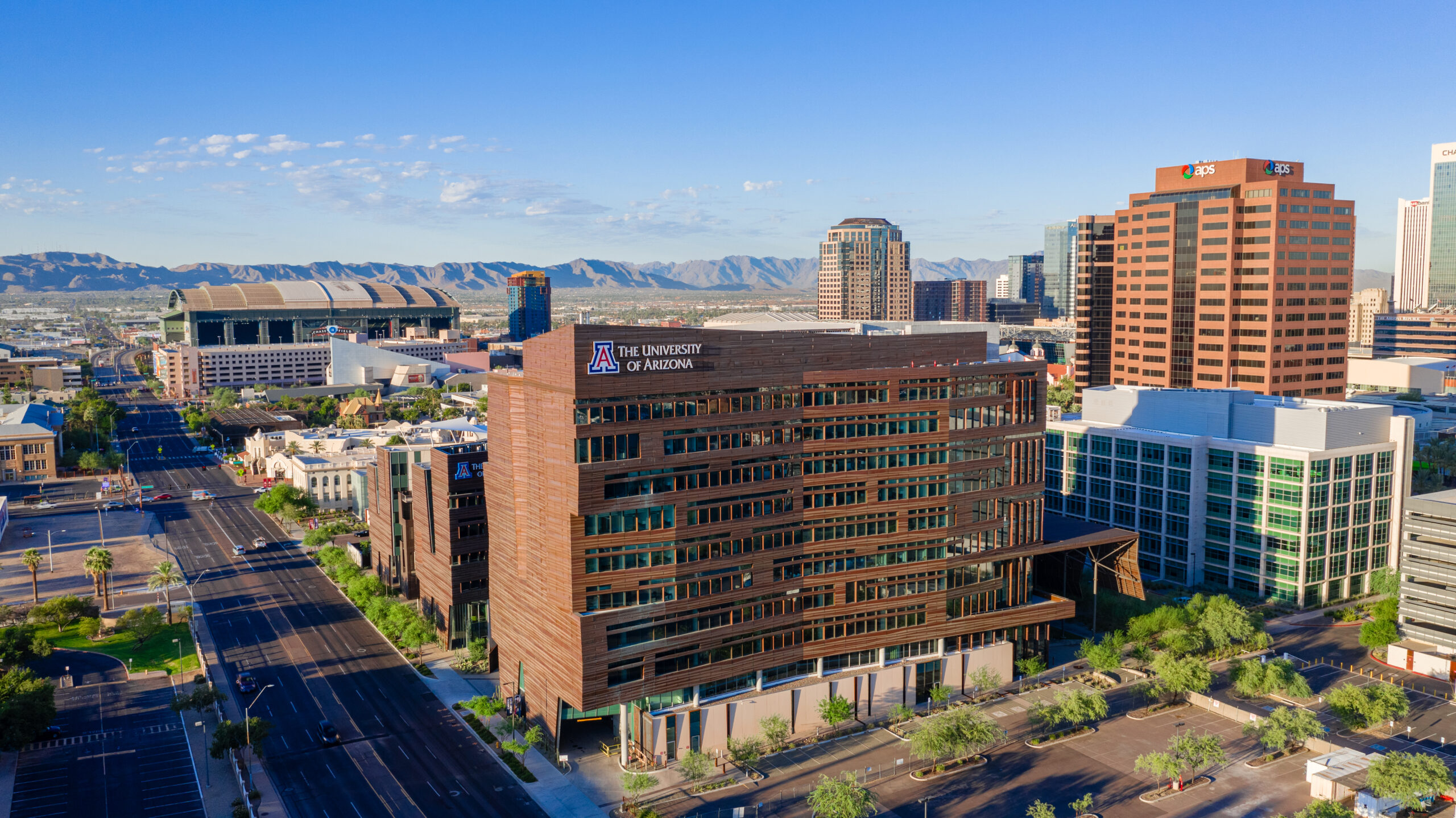The City of Phoenix City Council voted Jan. 3 to update the development plan for the Phoenix Bioscience Core as Arizona State University and the University of Arizona announce new major phases to the development of life sciences in downtown Phoenix.
Authorization to Enter into an Intergovernmental Agreement with Arizona Board of Regents on behalf of Phoenix Bioscience Core for an update to the Comprehensive Master Development Plan (Ordinance S-50442)
The City Council formally approved the authorization for the City of Phoenix to enter into an intergovernmental agreement with the Arizona Board of Regents, which oversees Arizona’s three public research universities, on behalf of the Phoenix Bioscience Core office to develop an update to the Comprehensive Master Development Plan. The Phoenix Bioscience Core, formerly known as the Phoenix Biomedical Campus, has gone under several master plan reiterations since the early 2000s as the universities and city have continued to develop the 30-acre PBC.
Phoenix City Mayor Kate Gallego shared her support for the development plan update, ensuring the City of Phoenix remains a rapidly growing life sciences market in the United States:
This marks the first time that the City of Phoenix, Arizona State University, Northern Arizona University and the University of Arizona, and the office of the Phoenix Bioscience Core will come together to update the master plan for the PBC.
“Thank you to Mayor Kate Gallego, and the City of Phoenix’s Community and Economic Development Department for their leadership and support of the PBC,” said Phoenix Bioscience Core Executive Director Scarlett Spring. “This is a critical next step to ensure the PBC remains the center of Phoenix’s life science ecosystem for years to come.”
Future Development in The Works
The Phoenix Bioscience Core is already a hot spot for future development from both the University of Arizona and Arizona State University.
UArizona announced in 2022 its plans to develop a new anchor institution for the PBC in its Center for Advanced Molecular and Immunological Therapies, or CAMI, at the southwest corner of 7th Street and Fillmore. The new tower, which is expected to break ground later this year, will significantly increase the research output for the University of Arizona in Phoenix in the areas of cancer research, immunotherapy, vaccines and drug discovery. The CAMI building is anticipated to be seven stories tall with more than 200,000 square feet of laboratory, administrative and seminar space. The laboratory space will accommodate up to 40 principal investigator-led research groups and include labs suitable for bioengineering research.
And Arizona State University is in the early stages of planning its new ASU Health schools and programs, which include its School of Medicine and Advanced Biomedical Engineering, as well as its School of Public Health Technology. While it hasn’t formally selected a site for the new ASU Health headquarters and the two new medical studies schools, ASU President Michael Crow did announce that it will be located in Downtown Phoenix, potentially near or on the PBC.
“We are very excited that all three of these things, the headquarters for ASU Health and two new schools, will be built in downtown Phoenix,” Crow said. “The citizens of Phoenix have been an important investor in higher education, science technology and medicine in downtown Phoenix. We are looking forward to working with Mayor Gallego, the city council and city leaders to create something that will enhance the entire health care ecosystem and be of service to the entire state. This is the right place to advance that work.”
And on the north side of the Phoenix Bioscience Core, Wexford Science + Technology announced in the second half of 2023 that the National Institutes of Health would move into the 7th floor of 850 PBC, a 224,000-square-foot tower home to ASU research, as well as private life science startups and companies.
The Phoenix Bioscience Core is a 30-acre life science cluster in the heart of Downtown Phoenix. It’s the only place in the state of Arizona where ASU, NAU and UARizona co-locate to advance health education and develop innovative breakthroughs in life sciences, public health and more. The PBC is also home to private and governmental research institutions such as the Translational Genomics Research Institute, or TGen, part of the City of Hope, the National Institutes of Health, Dignity Health Cancer Institute, the Phoenix Union Bioscience High School and more. The PBC is currently built out to 1.7 million square feet of life science, lab, office and academic space, with plans to develop to more than 6 million at full buildout.

